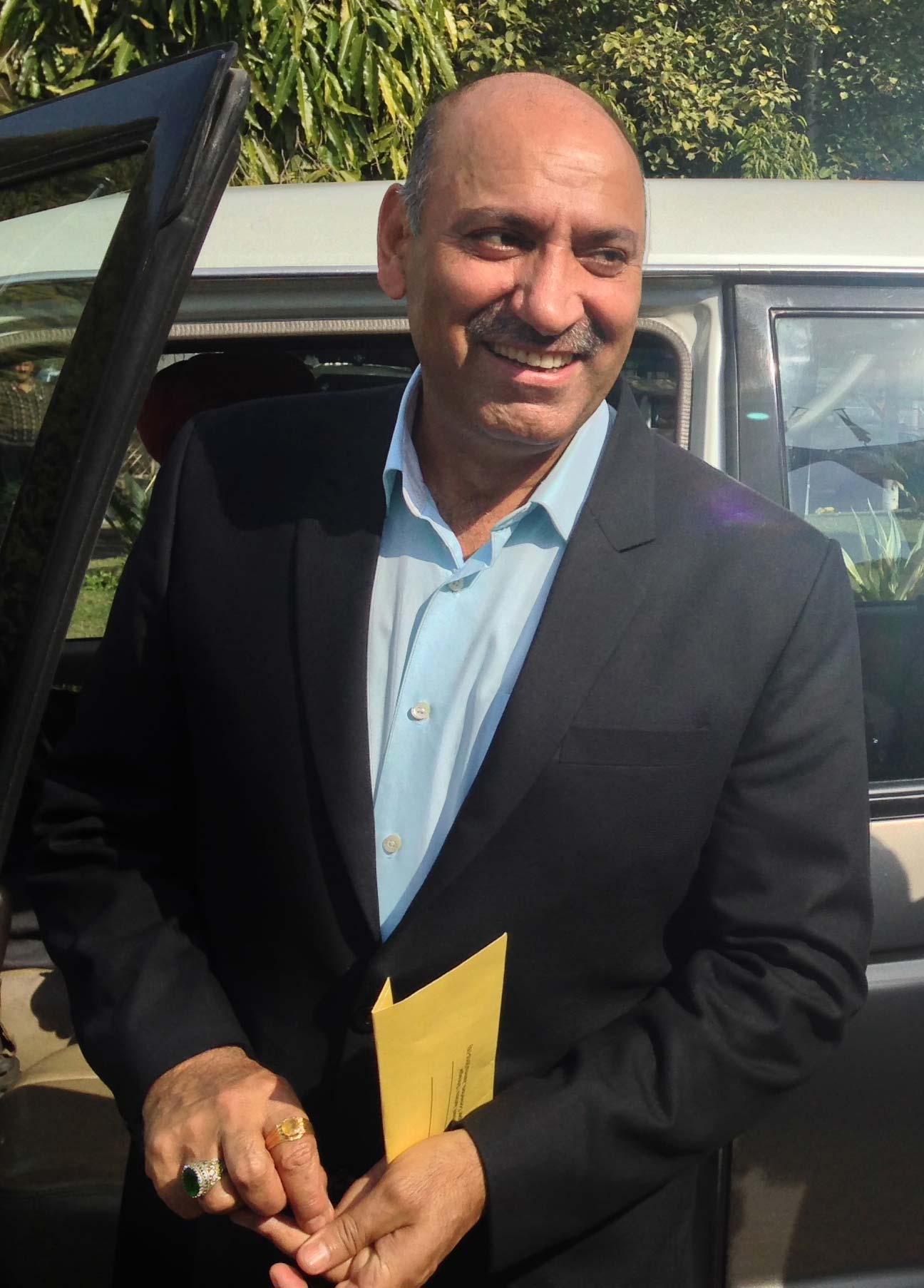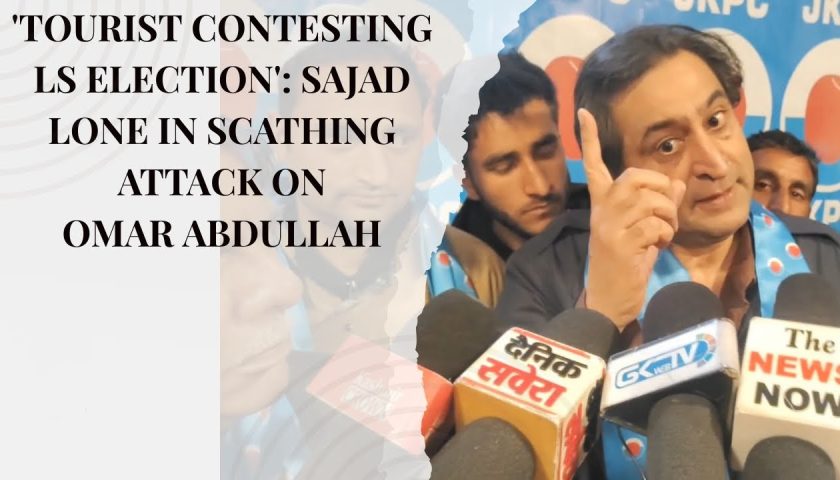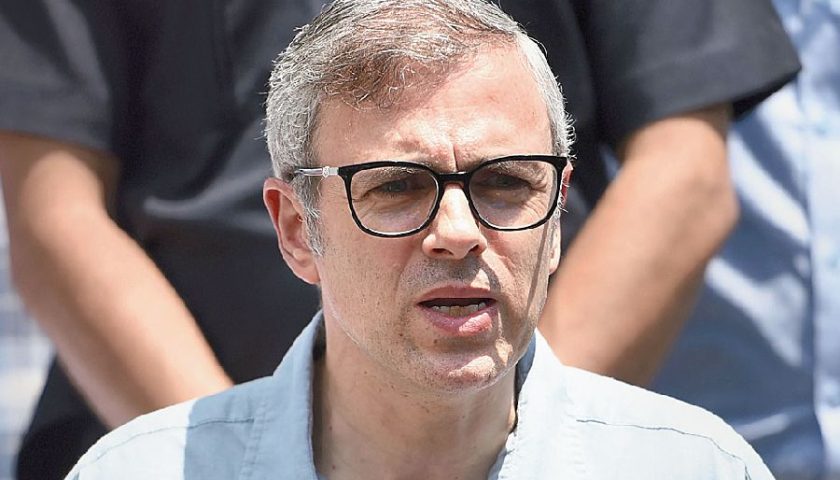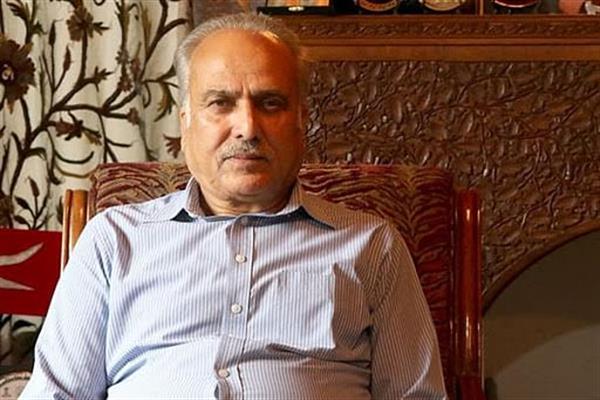From a top militant in Pakistan to becoming the lawmaker in J&K, Bandipora MLA Usman Majeed wore hats. The gun-wielding counter-insurgent once was the leading light of Awami League, the political party that Kukka Parray floated. Now a Congressman, who drives to assembly in Pajero, Usman offers his version of his take off in a detailed interview:
 KP: Every time you talk on security related issues you are accused of an Ikhwani?
KP: Every time you talk on security related issues you are accused of an Ikhwani?
Usman Majeed: They are doing it out of frustration to divert attention because they don’t have any argument against me.
KP: But why is your past coming back to haunt you again?
UM: I told them in the house that I was minister in the PDP government that Mufti Sayeed led. After I defeated their candidate with huge margin, they started talking on non-issues and rake baseless things against me. I have fought five elections after 1996 and lost only twice. If there would have been some black spot in my past, people would have never accepted me. I contested as congressman but my success is because of my personal hard work and investment.
KP: But your evolution in politics has been a very long process. You were a militant and then you crossed the line, both idealogical and physical. Is not it interesting?
UM: I take it in a different way. It is God’s will to use me for good work and assigned me a role. Otherwise there were occasions when I thought I would be no more.
I joined militancy with the notion that India is doing injustice and we can settle the issue with gun. During my stay in PaK from 1991 to 1995, where I was vice chairman of United Jihad Council (UJC) and base in-charge of my party, Students Liberation Front, I realized I am wrong. I saw the realities there. My interactions with politicians, bureaucrats, ISI, military men always concluded on a note that they are insincere with Kashmir. They wanted their war of survival to be fought at the cost of Kashmiri people. There were times when I felt unsafe in Pakistan. These are long stories, I am writing a book.
One day I along with Tanveer-ul-Islam, who was Chairman of UJC met Sardar Qayoom. He (Sardar Qayoom) was candid enough to tell me that Kashmiris are biggest fools as they don’t know what for they are dying. He suggested me to go back and do something to save people of Kashmir.
So in the late 1995, I returned back via Bangladesh-Nepal.
My joining of Ikhwan was due to circumstances. I joined its political wing, Awami League. As a young boy too, I was basic member of Peoples Conference. I actually wanted to follow my father who was a Congressman.
KP: But which kind of political movement was it when Awami League was led by Kuka Parrey himself?
UM: Due to the circumstances it was required at that time. The group of people who started it, they were not all Pakistan trained militants. Majority of people voluntarily joined Ikhwan because everything was going against Kashmiri people. I remember the day when I fought with ISI chief. We had come to know about anti militancy drive and formation of Ikhwan. I asked him about their policy to liberate Kashmir and he told me who the hell are you to ask these questions. I rebuked him saying that I am a representative of people of Kashmir and not your soldier. He told me that Pakistan’s policy was prick and bleed. My response was that it means we are fighting war of your survival.
This altercation had its effect. My brother was kidnapped. We had to pay very huge amount to release him. Later he was killed as I didn’t say sorry to the General. There were, however, some friends who managed my exit from Pakistan in December 1995.
KP: But if you were so keen to protect the people, then why were you a spectator to what Ikhwan was doing?
UM: Those who did wrong, paid the price; whether they were Ikhwanis or insurgents. God punishes wrong-doers. Those who have killed anybody also got killed. Every organization has good and bad people.
KP: What became the unmaking of Ikhwan, how it died?
UM: They had no role after the restoration of peace and democracy because it is not Pakistan, where militants are part of military system. In democratic India this thing will not be allowed. Yes, some of the Ikhwan men worked for the army during the Governor’s rule and some of them might have done wrong. It was winded up in 1998. After that those who came were surrendered militants and agencies used them under the name of Ikhwan.
KP: But was it so important that Kuka Parray himself was killed?
UM: He was killed because of his own fault and it was not handiwork of ISI or Pakistan. He was advised not to go there and despite warning, that was his third visit to the same venue. I don’t see any force behind it or the government of India. The Ikhwan was movement of Kashmiri to fight against the gun sent by Pakistan.
KP: But was system very positive in accommodating whatever was left?
UM: No. I am very sorry to say that they did not. In history of J&K, two movements have taken place. One was when Sheikh sahab acceded to India and second it was very difficult for India to retain back Kashmir but that movement (Ikhwan) has given it back to India.
But they did not rehabilitate them though it was their responsibility.
KP: Are you seriously believing that hadn’t Ikhwan been around democracy would not have returned to Kashmir?
UM: Yes. It would have delayed by more than a decade. By the time things would have been different around the world. Sometimes I think they were used for the pity interests. They were used and bad name was given to them. If they would have taken this drive more serious, Ikhwani would have been respected.
KP: But one of the lawmakers pointed finger towards you for kidnapping?
UM: Absolutely baseless. My win with a margin of 26000 votes has frustrated them. It is not a joke. People have seen my performance.
I have brought breach of privilege against them and let them prove it.
The lawmaker in question told me that he had talked about Ikhwan in general and not particularly against me.
People are talking today about being parliamentarians and they claim that they have always been Indians. But I have seen worst part when everyone had joined anti-India movement. Today all those claiming to be Indian are due to courtesy of those who fought for restoration of peace.
KP: How do you explain that people who send you to Assembly later come out in huge numbers to seek Aazadi?
UM: I should not have picked up gun and fought like this. I think there have been some problems in the way our ancestors have taught us. If our parents would have conveyed us truth positively we would have never become militants. What I did, I did not want to pass it to my children and that is our weakness. Look at the world where it has reached. Now can we change the geography? Sometimes we have to be cool and think that is it only thing left for the Kashmiri Quom.
KP: If it is so useless, so impossible why people are still dying?
UM: There are different opinions and there is an issue, I admit that. India and Pakistan has a responsibility to sort out this issue while taking people of Kashmir on board. But I see India and Pakistan will never involve Kashmiris to ask them what you want. Moreover, if we can get something it will be from India and not from Pakistan. So there is our role with Delhi so that we can live with dignity and honor. Government of India will have to solve this problem with Pakistan.
KP: But if Delhi is resorting to use of pellets against the civilians how can you sell it in Kashmir?
UM: World is changed and these things will not be tolerated. At least they will have to respect human rights. We too have to be responsible in our way and not create problems.




